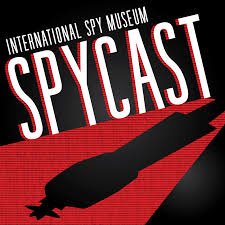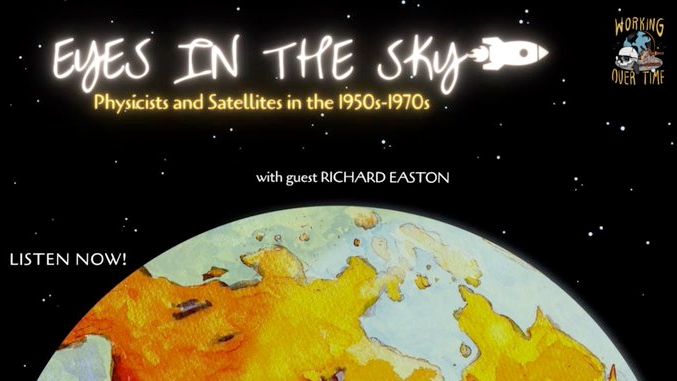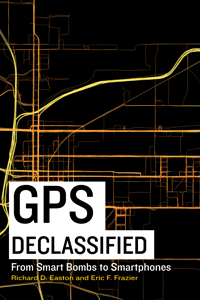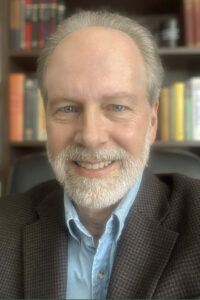Richard recently spoke with Astro Roadie of Total Space Network about the History of GPS. More than a podcast, this presentation is suitable for STEM students and offers a wealth of visual illustrations, including historical photos, vintage news footage, maps, graphs and computer animations.
Tag Archives: Timation
Richard Easton Appears on The Malliard Report Podcast
Richard recently joined host Jim Malliard on his podcast, The Malliard Report, to discuss the history of GPS. In one hour, Richard touched on the most important topics across the sweep of GPS history, from the challenges during the early days of the space race to more current issues, such as tracking, jamming and spoofing.

Filed under News
Richard Easton Interviewed on Working Over Time Podcast
Richard Easton joined Karen Bellinger, host of the podcast series Working Over Time, to discuss the early days of satellites and the scientists and inventors, like Roger Easton, who paved the way for today’s world of GPS and GNSS systems. Listen here.
Filed under News
Home Brew History Podcast Interviews Richard Easton
Richard Easton recently spoke with Riley “Bo” Trisler and Joseph “Jo” Ricci about the evolution of GPS and the military and civilian uses of time and location technology. Check out the conversation, Lost and Found – GPS Declassified.
Filed under News, Uncategorized
History Hack Podcast Interviews Richard Easton
 The History Hack podcast recently interviewed Richard, who spoke about his father’s role in the early space race and the creation of GPS. The discussion also touches on the controversy that remains over the so-called “Lonely Halls Meeting” in 1973, the year the Pentagon merged Navy and Air Force satellite navigation programs to create the dual-use system that today functions as a global public utility. Listen to the podcast here.
The History Hack podcast recently interviewed Richard, who spoke about his father’s role in the early space race and the creation of GPS. The discussion also touches on the controversy that remains over the so-called “Lonely Halls Meeting” in 1973, the year the Pentagon merged Navy and Air Force satellite navigation programs to create the dual-use system that today functions as a global public utility. Listen to the podcast here.
Filed under News
Read Richard Easton’s guest blog at Lidar News
Richard Easton recently contributed a guest post for the Lidar News “In the Scan” blog. In his post, Richard reviews the history of GPS and highlights several common myths surrounding the technology, as well as widespread misinformation about its origin. Richard continues to pursue documentary evidence that will shed additional light on the early days of GPS.
Filed under News, Uncategorized
Richard Easton interviewed on TOCRadio Podcast
Richard kicked off the new year with an appearance on TOCRadio’s Podcast Episode 19. In a wide-ranging interview, hosts Wyatt Harper and Matt Schoenfeldt queried him about the historical development of GPS and the arrival of GPS III satellites, which are finally launching after years of delays. Richard debunked the common myth that President Ronald Reagan declassified GPS for its first civilian use, discussed how GPS impacted the Persian Gulf War, summarized ongoing challenges related to spoofing and jamming, and raised the policy issue posed by whether new military receivers should incorporate other GNSS signals.
TOCRadio is a military-themed podcast produced by LTC Matt Schoenfeldt and CPT Wyatt Harper.
Filed under News
SpyCast Interviews Richard Easton
 SPY Historian Vince Houghton sat down with Richard Easton, co-author of GPS Declassified: From Smart Bombs to Smartphones, to discuss the development of GPS and its role in the military, intelligence, and civilian domains. Easton’s father, Roger, led the Space Applications Branch of the Naval Research Laboratory from the Vanguard Satellite era to the early days of GPS development. Listen to the entire podcast.
SPY Historian Vince Houghton sat down with Richard Easton, co-author of GPS Declassified: From Smart Bombs to Smartphones, to discuss the development of GPS and its role in the military, intelligence, and civilian domains. Easton’s father, Roger, led the Space Applications Branch of the Naval Research Laboratory from the Vanguard Satellite era to the early days of GPS development. Listen to the entire podcast.
Filed under News
Time Synchronization and the Origins of GPS
Richard Easton will present a talk, “Time Synchronization and the Origins of GPS,” at the forthcoming conference, The Science of Time, June 5-9, 2016, hosted by the Harvard-Smithsonian Center for Astrophysics in Cambridge.
Richard is scheduled to speak Wednesday, June 8, at 10:45. His talk will focus on how the need to synchronize clocks at widely separated satellite tracking stations sparked the idea of placing highly accurate clocks, and eventually atomic frequency standards, aboard satellites. This led directly to the Global Positioning System, which enabled worldwide time synchronization.
Filed under




